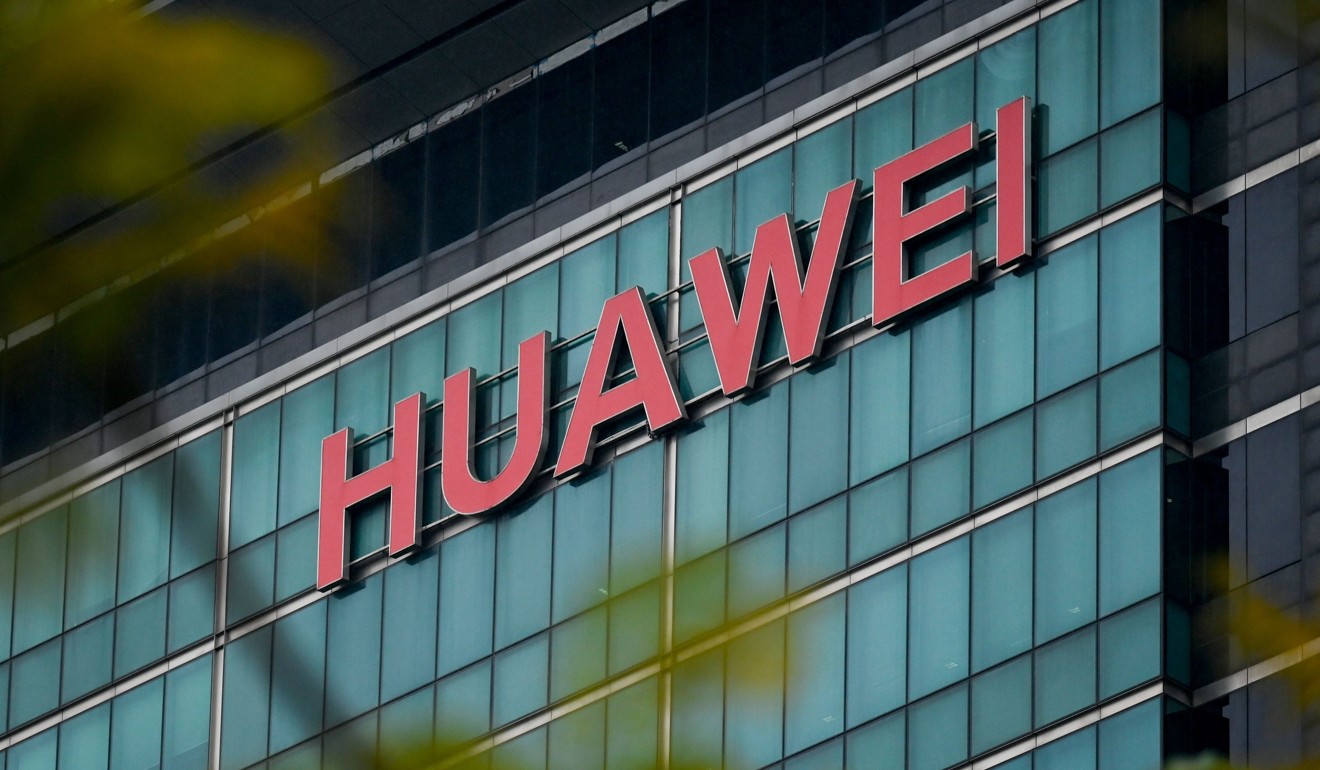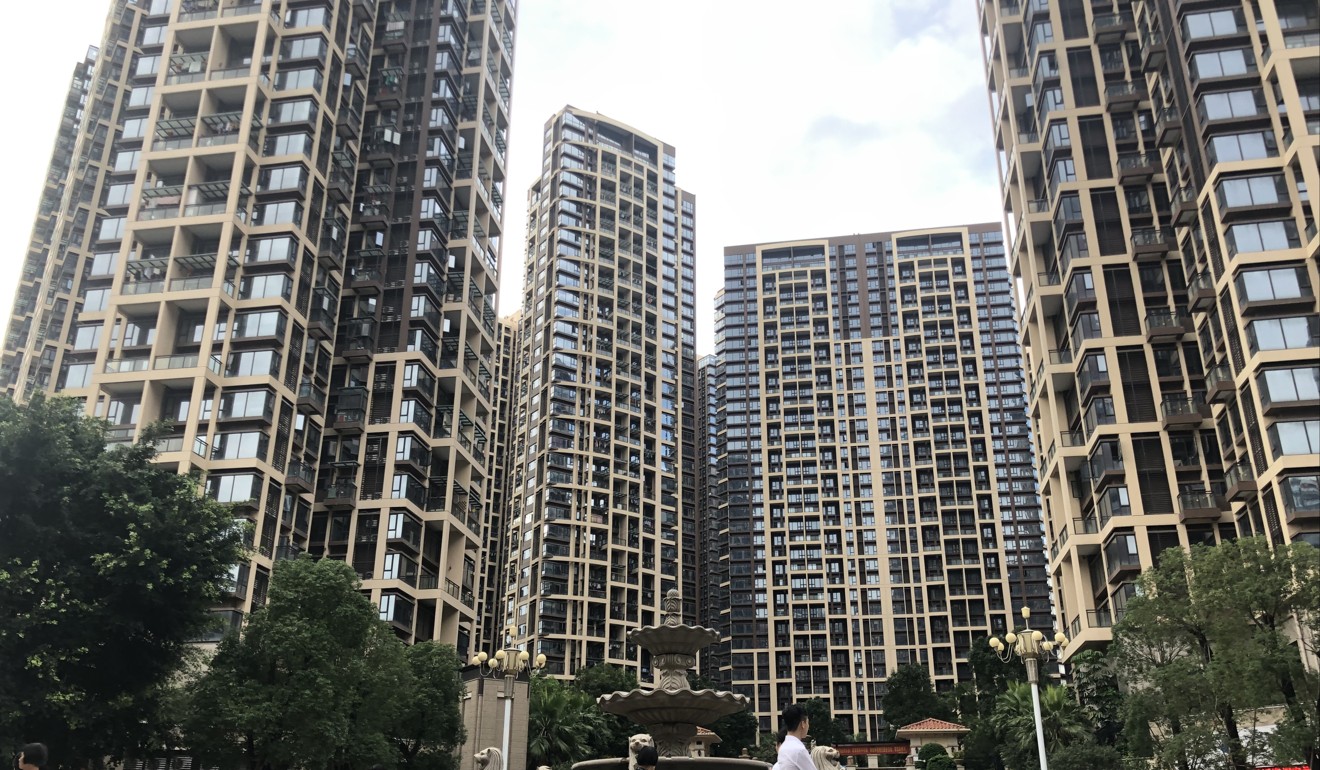Trump’s Huawei ban cools property deals in Shenzhen’s Bantian area popular with telecom firm’s employees
- Home sales in Bantian have fallen by a third this month compared to April, shows data from China Real Estate Information Corp
- Homes in Bantian are priced 6 per cent higher than the Shenzhen average because of its proximity to many top tech firms

Chen Xiao is under severe pressure. The property agent in Shenzhen, home to telecoms giant Huawei Technologies and other Chinese tech stars like ZTE and Tencent Holdings, has not closed a single deal this month.
With the escalating US-China trade war and Huawei banned from doing business in the US over security concerns, the darkening mood of the company’s employees has spilled over to the property sector.
“May used to be my best month, as sometimes I would close up to six deals because Huawei pays bonuses around this time,” the 30-year-old Centaline Property Agency broker said.
Chen focuses exclusively on Bantian in Longgang district where Huawei is based.
According to property consultancy China Real Estate Information Corp (CRIC), home sales in Bantian this month fell by more than a third compared to April. Agents estimate Huawei staff and their families are responsible for more than half of the transactions in the area, where prices have risen 11 per cent since the beginning of 2017. Some 40,000 employees work at Huawei’s headquarters in Bantian, company sources said. It employed 180,000 people globally as of end 2017, according to information available on its website.
Market observers said another reason for the softening demand was the shifting of some Huawei staff from Shenzhen to Dongguan in July last year. Although the 28 million square metre subdistrict to Shenzhen’s north accounts for just 1 per cent of the city’s total size, it contributed 10 per cent to its gross domestic product last year.
Driven by demand from tech professionals despite its distance from the city centre – 40 minutes by car – Bantian homes fetch an average price of 57,839 yuan (US$8,365) per square metre, 6 per cent higher than the average in the city. The city’s housing costs ranked the fifth globally, according to a CBRE report from April.
A former Huawei employee who worked with the telecoms firm for 15 years told the Post that some major residential estates in Bantian were particularly sought after by the company’s employees, including Royal Hill, which is a 10-minute walk from the headquarters.
But even there, transactions have fallen sharply from 40 in March to only 10 in May, as the trade war continues.
Centaline’s Chen said that earlier some Huawei staff would reserve a flat over the phone after simply looking at some pictures of the apartments. “Now, obviously, they have more on their mind and are taking longer to decide on buying a home.”
Some Huawei employees have expressed concern over the uncertain environment, fearing a cascading effect on the economy, their company and their livelihood.

“Of course I’m concerned,” said a middle-aged Huawei back-end office employee with a home in Futian district, who did not want to be named. “If I were out of a job, how would I pay my mortgage? The road ahead [for the economy] is unclear.”
Market observers said that the pessimistic sentiment had affected the market across Shenzhen’s nine districts. For instance, in Nanshan’s Shekou subdistrict, close to the headquarters of firms such as ZTE, drone manufacturer DJI and Tencent, seven Centaline branches reported sales decline of as much as 15 per cent this month. Across the city, sales have fallen 10 per cent.
“The trade war and the [plunging] stock market have made potential buyers more hesitant and more would like to take a wait-and-see approach,” said Fion He, chief analyst with property brokerage Midland Holdings.

Oscar Choi, chief executive of asset management firm OP Capital, said that as the companies on the US blacklist are mostly from the tech sector based in Shenzhen, the city’s high-end housing market may be affected. He explained that the city’s luxury property market relies on top managers to make big-ticket purchases, and the uncertain climate would hold them back.
Already, some luxury projects have seen disappointing sales.
On May 16, around 100 units out of 1,100 were sold in a development in Nanshan district where flats were priced at more than 12 million yuan.
Meanwhile, Centaline’s Chen has now decided to try his luck on new projects away from Bantian.
“New homes draw various buyers, including investors from other cities. It might be easier than just being limited to a fixed group of clients in the same neighbourhood.”